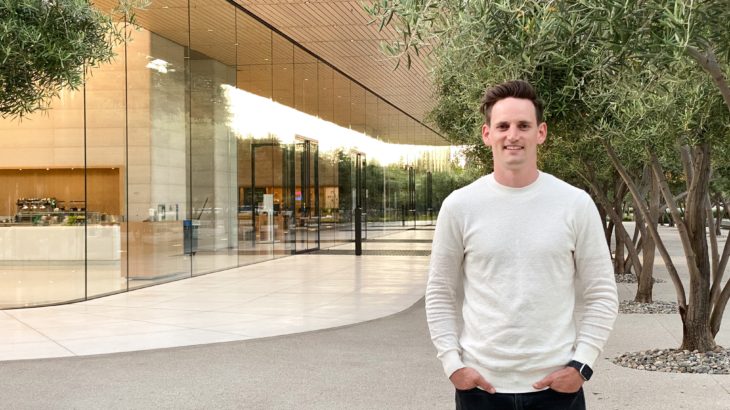In his senior year of undergraduate degree at the University of Utah, Jared Pieper realized something was missing in his engineering program.
“The concepts were interesting, but the type of work I realized I might be doing didn’t fit my personality,” he said. “I wasn’t excited by the prospect of doing simulations by myself, sitting at a desk, and doing CAD. I knew I needed to pivot, but I didn’t know where.”
Pieper wanted to do more group work, team problem-solving, and big-picture thinking, and that’s exactly what he found at the University of Utah’s engineering MS/MBA program. While pursuing his dual degrees, Pieper found the Lassonde Entrepreneur Institute. During his first year, he pitched a few business ideas to the Get Seeded grant program.
“None of my ‘big’ ideas went anywhere,” he said. “But I learned how to fail fast and see a bigger picture. That feedback was invaluable, and I started to understand how my interest in business and engineering fit together — I got to experience not just how to create a product, but how to create value.”
Pieper was attracted to the concept of entrepreneurship: wearing different hats, problem-solving, building something from nothing. But after his time both pitching in and serving as managing director of the Get Seeded program, he decided he would rather use his entrepreneurial skills at an established company than start one himself.
“Lassonde taught me that starting your own company is not as glamorous as I thought,” he said. “It’s hard work, and you have to dedicate your life to your idea and be willing to take risks.”
While still working on his degrees, Pieper accepted a quality engineering internship at Tesla. After graduation, the job turned into a full-time position in project management in the Bay Area, and Pieper signed on.
“A lot of the skills I learned at Lassonde and in my MBA were immediately applicable to Tesla,” he said. “Tesla was very much a startup at the time, so there wasn’t a set way to do things. From Get Seeded I knew that if you want to get something done, you have to make a clear game plan, build a team, iterate when you hit roadblocks, and don’t be afraid to present to a room full of critics. I had to negotiate and lead and use data to make big decisions, and I learned a lot of that from my time at the U.”
After nearly two years with Tesla, Pieper decided it was time to move on.
“I wanted to get more experience at a larger, more established company,” he said.
For Pieper, the right place was Apple. Since 2018, he’s been an engineering program manager assigned to the iPhone. In his new position, he started to feel that same perfect fit he’d first identified in his MS/MBA.
“We problem-solve from all different angles, hardware design issues, production bottlenecks, commercial conflicts, and everything in-between,” he said. “I get to work with Ph.D.’s who know way more than me, and I’m constantly getting to learn.”
One of his favorite parts of his manager position calls back to his time at Get Seeded.
“I’m responsible for making sure that programs get executed on time,” he said. “And we have a lot of voices in the room, everyone with their own goals and objectives. They always conflict with each other, and it can bring progress to a standstill. While at Lassonde, I learned how to find out what incentivizes people and find creative ways to bring the team together and get things done, and that’s what I do now: I take these complex problems with dynamic teams and get us all to achieve the common goal.”
When Pieper thinks back on his senior year of undergrad, he’s grateful he took the chance on his business side.
“We always get really intense engineering problems at Apple, and we’re guaranteed in-depth technical discussions,” he said. “I can be a part of those, but then distill them down and present them in a way that the business teams and executives can understand and bring their support. I’m a liaison between business and engineering, and it’s awesome.”
For students in his same position, he has some words of advice: don’t be afraid to pivot.
“There’s a lot of value that comes in having a different background, especially in education,” he said. “So many of today’s problems are multi-disciplinary and not just in the startup world, so by combining your new interests with your previous education and experience, you can set yourself up well to meet those problems and make yourself an advantage for any team.”



